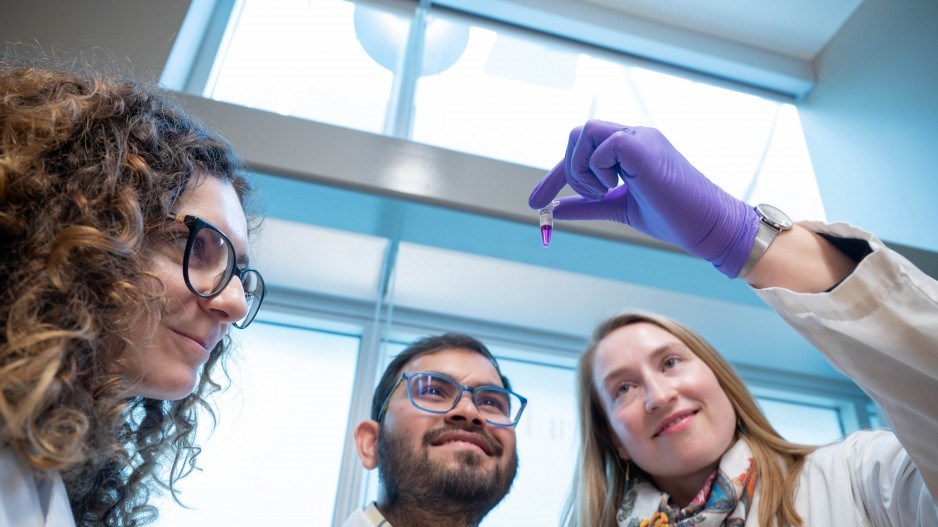The University of British Columbia (UBC) is getting $2 million over the next four years to develop Canada’s Immuno-Engineering and Biomanufacturing Hub.
The primary goal of the hub is to establish a drug development pipeline that will respond to pandemics and other health challenges within 100 days.
UBC will be home to one of five new Canadian life sciences research hubs meant to focus on vaccines, therapeutics and pandemic preparedness. Announced by the federal government on March 15, these hubs will be located at universities across the country, including Edmonton, Hamilton and Montreal.
Over the next four years, $570 million in federal funds will be available to support projects and proposals that come out of the various hubs.
“Together, our hub partners have a vision to make Canada a global epicentre for developing next-generation immune-based therapeutics that can be rapidly produced domestically,” said Gail Murphy, vice-president of research and innovation at UBC.
Murphy said that the hub will also help contribute to needed skills training and talent development for the biomanufacturing and life sciences ecosystem.
The hub includes more than 50 organizations from private, public, not-for-profit and academic sectors. Private-sector partners include staples in B.C.’s life sciences sector, such as STEMCELL Technologies, AbCellera and Precision NanoSystems.
Ten years ago, AbCellera was based in a lab at the university, across the street from its student union building. Once it outgrew its collegiate home, AbCellera was spun off into its own company. Today, it has a market cap of over $2 billion and more than 500 employees. Co-founder and COO Véronique Lecault said she is hopeful that the new hub at UBC will help ideas grow into companies.
Lecault added that the hub will help provide specialized infrastructure, lab spaces and technologies needed for innovation in the biomanufacturing sector. Beyond that, she said that it will create the networks, connections and clinical trial infrastructure necessary to turn research ideas from university labs into life-saving medicines that eventually get spun out into companies.
Pieter Cullis, a member of the hub’s core scientific team, said that the hub also creates opportunities and potential to develop treatment and therapies for everything from Alzheimer’s, to heart disease, to cancer, and that each of those therapies has the potential to create a new company.
“As you develop proof of [concept], you can start to spin out a company to develop that as a real therapeutic,” said Cullis.




